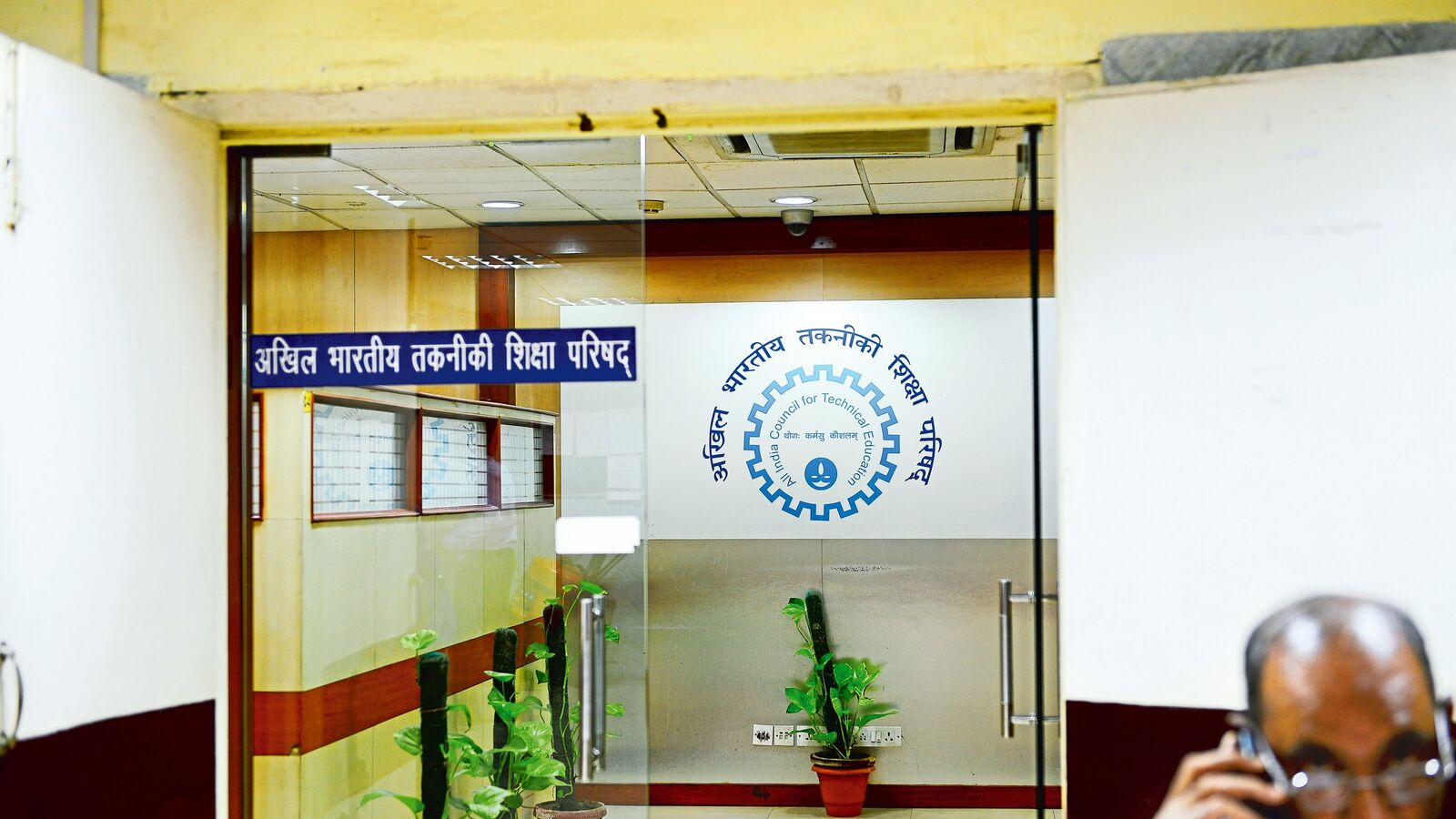Educational and industrial bodies have joined hands to promote space education in engineering colleges and provide students with exposure to India’s private space sector.
The All India Council for Technical Education (AICTE) and industry body Indian Space Association (ISpA) on Tuesday signed a memorandum of understanding (MoU) to nurture a first generation of space engineers.
Currently, most Indian space startups lack skilled space engineers.
At a space symposium in Delhi, AICTE Chairman TG Sitharam said the initiative “will enable students and teachers to gain a better understanding of space technology and its applications… through webinars, events and exhibitions.”
Exposure to the development of new technologies
“The initiative will increase exposure to the development of new technologies, both domestic and international, through newsletters, events and webinars. We will also conduct joint orientation programmes to inform students about the opportunities.
“Interactions with the industry will be undertaken, which could include opportunities for industry familiarisation visits, internships and exposure to potential jobs. We will also facilitate industry-wide technology challenges and hackathons involving space technology teams at AICTE-approved engineering institutions,” Sitharam added.
India’s initiative to promote space curricula in engineering institutes has been a long time in the making.
In June, Pawan Goenka, chairman of the government-affiliated Indian National Space Promotion and Authorization Centre (In-Space), said: Mint In an interview, he said, “The domestic space industry is still at an early stage. On behalf of the Centre, we are already pushing for inclusion of dedicated space sector curricula at the Indian Institute of Technology (IIT), and will expand this range to all engineering colleges in India in the long run.”
On Tuesday, Sitharam elaborated: “We have launched a new space technology curriculum formulated by In-Space. The future of India’s space ecosystem is envisioned to be highly automated, flexible and economically viable. A robust space infrastructure will not only enable the growth of innovative applications but also foster competitive services. The need to support cost-effective, responsive and flexible approaches to space cannot be overemphasized,” she said.
The space curriculum, he added, covers “a broad range of topics, from the basics of launch vehicle systems to advanced space data products and services.”
Speaking about the potential impact of promoting space education in engineering institutes, S. Somanath, Chairman, Indian Space Research Organisation (Isro), said, “If India counts every rupee that has been spent on our space programme from its genesis till now, we have produced an economic impact in the range of 2.5 times the investment.”
“Space has also created immense value, with a net worth in the tens of billions of dollars. It has created jobs and employment opportunities for hundreds of thousands of people, both directly and indirectly. We have created support systems for fishermen, agriculture, crop forecasting, natural resource planning, disaster prevention, and much more.
“India is a nation of startups with over 150,000 startups, and we are just a small subset with 200 space startups that have emerged in the last few years. I think there is scope for much more growth,” Somanath added.
‘Open call for space entrepreneurs’
The senior official, who also serves as the secretary of the Department of Space (DoS), offered an “open call” for space entrepreneurs, highlighting India’s first-generation space curriculum as a step towards promoting the latter.
In-Space’s vision and strategy for the next decade, released in October last year, projected a potential valuation of the space sector of $44 billion by 2033, up from the DoS’s own estimated valuation of $8 billion. Industry stakeholders have so far questioned the valuation, urging the Center to replicate the U.S. model, where the government is a key customer, to promote space ventures.
In last month’s Union Budget, Finance Minister Nirmala Sitharaman set aside a ₹A Rs 1,000 crore venture fund for space startups, a move that was welcomed.
Narayan Prasad Nagendra, COO of space startup Satsearch, said: Mint At the time, “while the amount of the fund and its distribution mechanism remain to be seen, it is good to note that the Centre is putting its two cents into the space game, a move that can only encourage foreign investments.”
Catch all the Industry News, Banking news and updates on Live Mint. Download the Mint News App To obtain daily Market Updates.
FurtherLess
Disclaimer:
The information contained in this post is for general information purposes only. We make no representations or warranties of any kind, express or implied, about the completeness, accuracy, reliability, suitability or availability with respect to the website or the information, products, services, or related graphics contained on the post for any purpose.
We respect the intellectual property rights of content creators. If you are the owner of any material featured on our website and have concerns about its use, please contact us. We are committed to addressing any copyright issues promptly and will remove any material within 2 days of receiving a request from the rightful owner.

